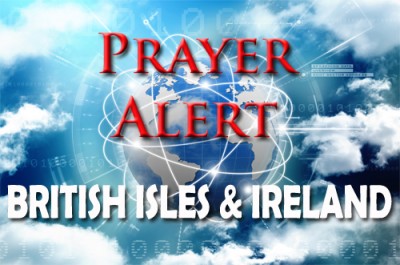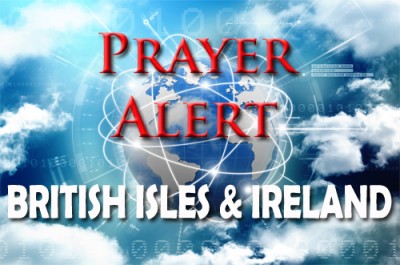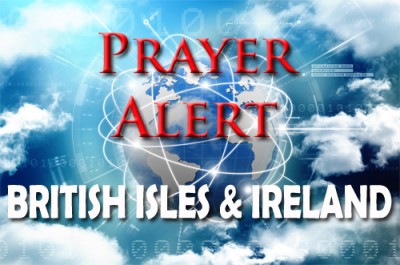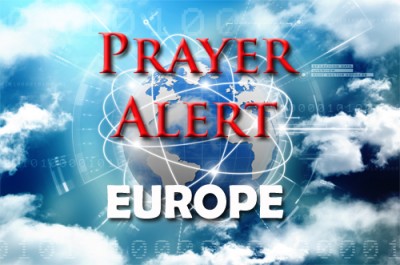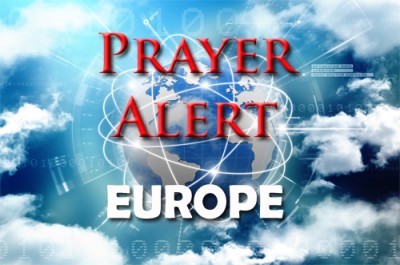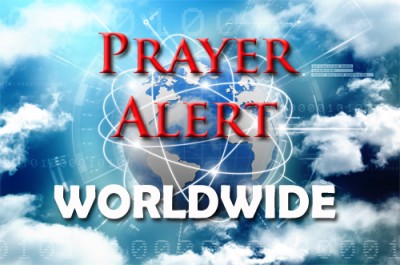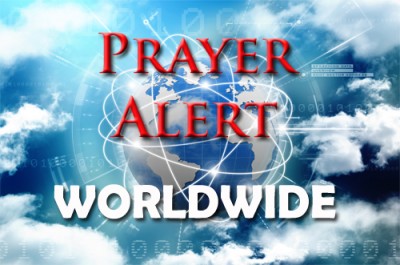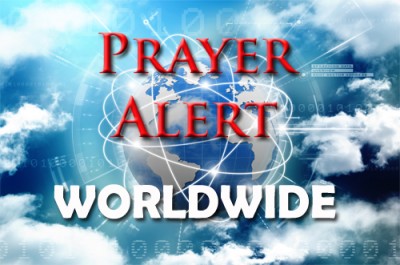Rio Paralympics: the Great Britain team
09 Sep 2016Great Britain will have a team of 264 athletes, competing in nineteen sports, at the Rio Paralympics. The British team has never finished outside the top five in the medal table. At London 2012, the members won 120 medals, including 34 golds, to finish third behind China and Russia - and hopes are high they can surpass that in Brazil. To watch an incredible three-minute all-music all-dancing ‘Yes I Can’ Paralympics video, click the ‘More’ button.
Theresa May: UK to lead world in free trade
09 Sep 2016Theresa May said that the UK could become ‘the global leader in free trade’ as she faced calls to clarify the government's post-Brexit vision. Making a G20 summit statement, the PM refused to give a running commentary or ‘reveal our hand prematurely’ after Australia and the UK began preliminary discussions about a new trade deal. The Australian trade minister predicted an agreement between the countries. But, with the UK unable to sign deals while still in the EU, he said an agreement would not happen until the UK left the EU in 2019. Australia is earmarked as the first potential new trade partner for the UK once it leaves the EU. Addressing MPs, Mrs May said that India, Mexico, South Korea and Singapore were also keen to remove trade barriers. She pledged to ‘think through the issues in a sober and considered way. So we will not take decisions until we are ready.’
Shameful destruction of Belfast Jewish graves
09 Sep 2016A gang of youths used hammers and blocks in an attack on the walled-off Jewish section of a cemetery in Belfast last Friday. Seventeen Jewish graves were destroyed in the organised attack. The Police Service of Northern Ireland is investigating the incident as a hate crime. Some of the graves dated back to the 1870s. Bishop Noel Treanor of the Irish diocese of Down and Connor said, ‘What a tragedy and blemish on our society that the long-present, beloved and treasured Jewish families of our community should suffer yet again such actions of disrespect and violence to the memory of their beloved dead; and the regrettable outworking of a latent xenophobia that stalks the minds of some.’
Praying for Scandinavian countries
09 Sep 2016King’s Ministries is an apostolic-prophetic Ministry preparing the Body of Christ for the work of the Gospel and making the way straight for the Lord to come as a King to the Church, to cities and to nations. Many Scandinavian Christians believe God is strongly calling Nordic nations to gather to pray together for their nations and for the end time. We can join them in praying for God’s intercessory army to grow in cities and villages; may they destroy the altars and strongholds of evil. We can join them in continuous strong praise and worship in order to make breakthroughs both 24/7 and 24/365. For inspiring prayers and prophecies for Scandinavian countries, click the ‘More’ button below.
France: terror plot near Notre Dame
09 Sep 2016On Saturday an abandoned car with no registration plates containing six gas cylinders and a book with Arabic writing was found near Notre Dame Cathedral, sparking an investigation into a possible new Paris terror plot. Police have arrested two women who were ‘known to security services’, but it was unclear whether the couple were on France’s ‘Fiche S’ list of terror suspects.
Israel: ‘risk of civil war’
09 Sep 2016‘Israeli society is heading for civil war and the country must take steps to counter it’, former Mossad chief Tamir Pardo stated last week, in his first public remarks since stepping down as the spy agency director in January. ‘The internal threat must worry us more than the external threat,’ he told a press conference. ‘If a divided society goes beyond a certain point, you have, in extreme circumstances, a phenomenon like civil war. To my regret, the distance to that point is shrinking. I fear that we are going in that direction.’ Pardo said. He added that there was more to unite than divide but some in Israel sought the intensity that came with division, and ‘there are some for whom it’s comfortable to emphasise that which divides and not that which unites. I can’t put my finger on a group or a leader. It exists within all the country’s groups.’
Asia: pastoral training
09 Sep 2016Many would be surprised if they discovered their pastor had very little knowledge or understanding of the Bible and didn’t even own a concordance or Bible dictionary - yet that is the situation in many parts of Asia. ‘They don’t have the tools we take for granted,’ says Jim Davis, founder and international director of Pastoral Training of Asia (PTA). Davis was a Calvary Chapel pastor in California for 13 years before he went overseas in 1987. Recognising a tremendous pastoral training need, he started PTA, which has a special burden for the Karen people along the Myanmar-Thailand border. ‘Many of them are Anglican priests without much theology other than the catechism and their prayer book,’ he says. ‘They don’t have Bible dictionaries, commentaries or computers with Bible software. They’re already pastors, so they can’t drop everything and attend Bible school. The answer is to take training materials to them. Asia has the largest population in the world and the smallest percentage of pastors, missionaries and Christian workers’.
Hajj starts today
09 Sep 2016Today begins the life-long aspiration and spiritual climax for one-fifth of the world - the Hajj, the fifth pillar of Islam. Every Muslim who can afford it is required to go on a pilgrimage to Mecca, the birthplace of Islam, at least once. Pilgrims will perform sacred rituals, following the steps of Muhammad, seeking forgiveness of sins and a chance of eternal life. Jesus loves Muslims and died for them and the Hajj is an incredible opportunity for Jesus to reveal Himself to seeking pilgrims. Our prayers during this crucial time could change someone's eternity. Millions are seeking forgiveness and eternal life from a god who cannot hear and will not answer. While increasing millions are turning to Muhammad instead of Christ, Jesus continues to reveal himself lovingly to seeking hearts. Pray for Muslims to encounter him through visions, dreams and faithful witnesses. Pray for all efforts to silence the Gospel to propel it across the Muslim world instead.
